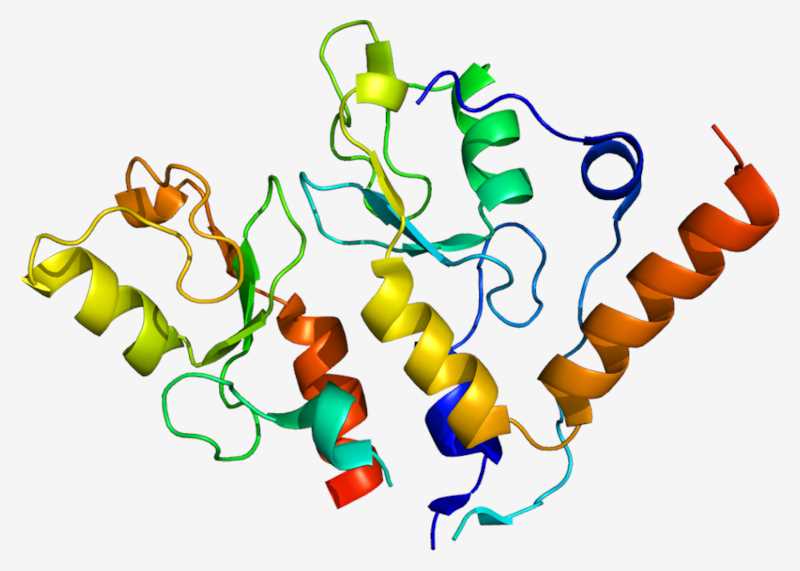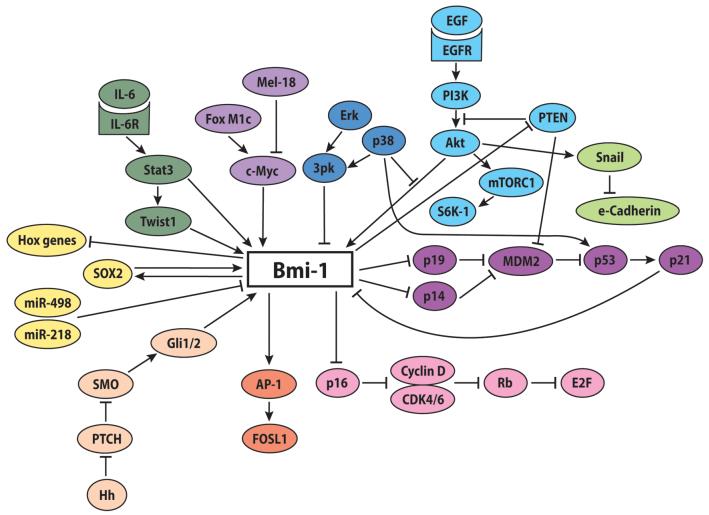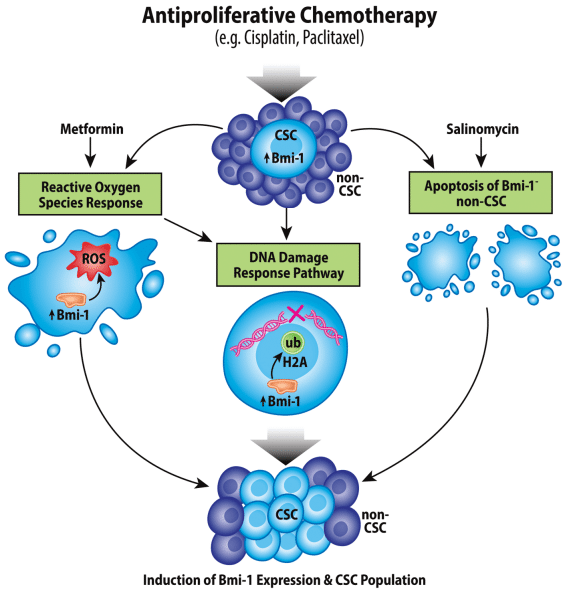NAA Services for Anti-BMI-1 Antibody
BMI-1 autoantibodies have been observed in a variety of cancers, including nasopharyngeal carcinoma (NPC), and it has been suggested to be an independent prognostic marker for the patients. With abundant experience and high-end technologies, Creative Biolabs has developed a whole set of innovative natural autoantibodies (NAA) platforms to offer fast and convenient NAA services for our worldwide customers. We will be your best companion in the NAA detection and analysis and we are sure that our fast and convenient NAA services can help you get a milestone success in the NAA projects.
Background of BMI-1
B lymphoma Mo-MLV insertion region 1 homolog (BMI-1) is also known as polycomb group RING finger protein 4 (PCGF4) or RING finger protein 51 (RNF51). The structure of BMI-1 is characterized by a RING finger at the N-terminus which is involved in zinc binding and contributes to the ubiquitination process.
 Fig.1 Structure of BMI-1.1
Fig.1 Structure of BMI-1.1
BMI-1 is regarded as an oncogene, playing a critical role in the regulation of gene expression pattern and consequently several cellular processes during development, including cell cycle progression, senescence, aging, apoptosis, angiogenesis, and importantly self-renewal of adult stem cells of several lineages. In addition, BMI-1 is associated with a variety of cancers, which can activate the immune system to produce anti-BMI-1 autoantibodies in tumor tissues.
 Fig.2 Potential involvement of Bmi-1 in key signaling pathways.2
Fig.2 Potential involvement of Bmi-1 in key signaling pathways.2
The Role of Anti-BMI-1 Antibody in Nasopharyngeal Carcinoma
Nasopharyngeal carcinoma (NPC) is a major head and neck cancer with high occurrence in Southern China and Southeast Asia. Although the overall survival in early-stage NPC patients is obviously longer than that with advanced stage, most patients present with late stage of disease at clinical diagnosis because of its deep location and vague symptoms. Therefore, screening and detection of disease biomarkers for the early diagnosis of NPC may significantly contribute to improving NPC therapy and prognosis.
In human NPC, BMI-1 has been found to be overexpressed and activate the immune system to produce anti-BMI-1 autoantibodies in the patient's serum. It is documented that serum anti-BMI-1 autoantibodies are positively correlated with cancer stem cell maintenance, differentiation, and propagation. In conclusion, measuring anti-BMI-1 autoantibody levels of patients with NPC could have clinical prognostic value as well as a non-tissue specific biomarker for neoplasms expressing BMI-1. Importantly, overexpression of BMI1 correlates with therapy failure in cancer patients and tumor relapse. Anti-BMI-1 autoantibodies tests may have clinical utility in NPC early diagnosis and therapeutic monitoring.
 Fig.3 Chemotherapeutic induction of Bmi-1 increases the cancer stem cell population.2
Fig.3 Chemotherapeutic induction of Bmi-1 increases the cancer stem cell population.2
What Can We Do?
At Creative Biolabs, we can provide one-stop detection and profiling services about serum anti-BMI-1 autoantibodies. Aided by our well-established platforms and experienced scientists, we can detect and analyze anti-BMI-1 autoantibodies with different and suitable methods, including but not limited to autoantigen/autoantibody array, peptide array, Enzyme-Linked Immunosorbent Assay (ELISA), LIPS, WB and dot blot. Besides, we can provide a comprehensive range of NAA services, from NAA detection, NAA profiling, to NAA epitope mapping. In addition, a wide spectrum of NAA products is also available for your choice.
Features of Our Services
- Advanced platform and experienced scientists
- High accuracy and high sensitivity
- Cost-effective and best after-sale service
Identification and detection of predictive/prognostic anti-BMI-1 autoantibodies are of great clinical importance to the improvement of the curative rate and survival rate of NPC patients. Creative Biolabs is dedicated to delivering the largest portfolio of products and services about NAA. Our proven and optimized platforms can help you quickly get satisfactory results without repeated trials. We also provide custom services based on the requirements of the clients to meet their specific demand. Please contact us for more information.
References
- From Wikimedia: By Emw - Own work, CC BY-SA 3.0, https://commons.wikimedia.org/wiki/File:Protein_BMI1_PDB_2ckl.png
- Herzog, Alexandra E., Ritu Somayaji, and Jacques E. Nör. "Bmi-1: A master regulator of head and neck cancer stemness." Frontiers in Oral Health 4 (2023): 1080255.
Related Services:
- NAA Services for Anti-MAGE
- NAA Services for Anti-Fibronectin Antibody
- NAA Services for Anti-CD44 Antibody
- NAA Services for Anti-EBNA-1 Antibody
- NAA Services for Anti-NY-ESO-1 Antibody
- NAA Services for Anti-PRDX2/3 Antibody

